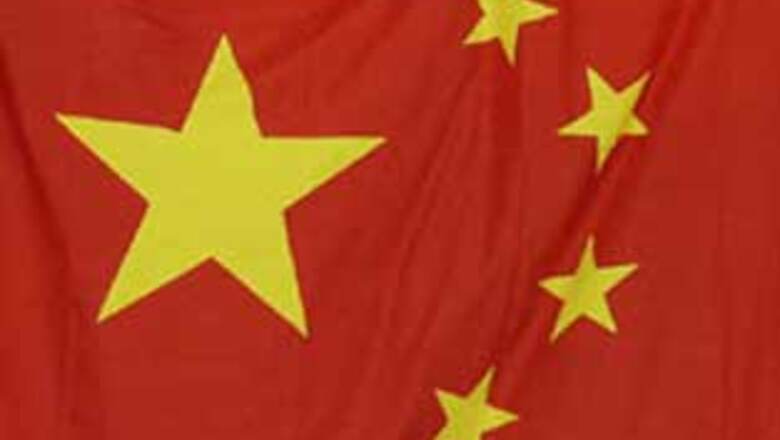
views
New Delhi: While the Chinese government has so far maintained studied silence over the suspected involvement of Pakistan-based terror groups in the Mumbai mayhem, Chinese state-controlled media has made its pro-Pakistan tilt apparent with its various despatches largely echoing Islamabad's position, an analysis of its reportage shows.
Chinese media also stands out for being perhaps the only international media that is blaming the Mumbai terror spree on the Deccan Mujahideen, a hitherto unknown outfit which claimed responsibility for the attacks and which Indian investigators feel is just a fig leaf for the Pakistan-based Lashkar-e-Taiba that is widely believed to be responsible.
"Official media in China is given only one view, that is, Pakistan's position on the Mumbai attacks by the department of propaganda affairs. That's why the official media has only highlighted statements by Pakistani leaders," Sriknath Kondapalli, a China expert at Jawaharlal Nehru University, told IANS.
"Through official media, China is speaking on behalf of its client state, Pakistan," Kondapalli said.
Barely two days after the Mumbai attack, People's Daily, the official organ of the Chinese Communist party, was echoing reports in sections of Pakistan's Urdu press that sought to blame Hindu militants for the Mumbai attacks.
"Although a group called Deccan Mujahideen has claimed responsibility for the attack, it can be seen from the red thread worn by the attackers around their waist that they could be Hindu youth," a report published in People's Daily said November 28.
The report quoted unnamed analysts to suggest that radical Hindu elements carried out the attack.
Subsequently, Chinese media carried reports that gave prominence to remarks by Pakistani politicians and officials denying any involvement of Pakistan-based elements in Mumbai attacks, but did not give India's version of events, giving the impression of these reports being biased in favour of Pakistan.
Xinhua, the government-run Chinese news agency, listed the Mumbai attacks as "one of the top 10 world news events in 2008" and singled out the Deccan Mujahideen for plotting the Mumbai mayhem that killed around 170 people, including 26 foreigners.
A report in Xinhua dated December 30 quotes Pakistan's Foreign Minister Shah Mehmood Qureshi as saying that "the statement of Indian External Affairs Minister Pranab Mukherjee regarding joint investigation into Mumbai incident supported Pakistan's stance".
The report mysteriously does not quote Mukherjee even mentioning such a joint investigation. India has rejected Pakistan's offer of a joint investigation into the Mumbai attacks and said it will share evidence after the probe is complete.
Another report on December 30 describes the meeting between Chinese vice president He Yafei and Zardari. "China looks forward to continuing to play a constructive role in defusing the tensions between Pakistan and India and promoting peace and stability in the South Asian region," Xinhua quotes He as saying.
When Chinese Foreign Minister Yang Jiechi rang up External Affairs Minister Pranab Mukherjee last week, he asked India to ease the tensions.
Surprisingly, there was no comment again on Pakistani links to Mumbai terrorism, according to official sources here.
"The Chinese media speaks for the Chinese government. It's a clever ploy to divert attention from terrorism and make the Mumbai attacks an India-Pakistan issue," G. Parthasarathy, India's former ambassador to Pakistan, told IANS when asked to comment on these media reports.
"China is trying to come to the rescue of Pakistan. As it has strong military ties with Pakistan, China is trying to legitimise its role as a peace broker in the region," added Kondapalli.


















Comments
0 comment